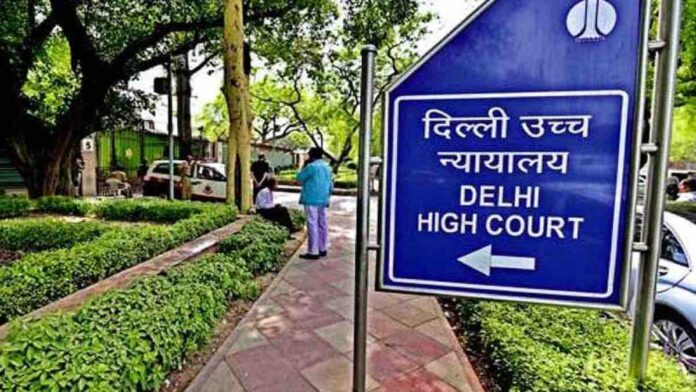The Delhi High Court was on Wednesday informed by the Centre that nearly 120 writ petitions challenging one or more provisions of the Waqf Act are pending before various courts in the country.
A bench headed by Chief Justice Satish Chandra Sharma, while hearing a PIL by lawyer Ashwini Kumar Upadhyay assailing certain provisions of the same law, asked the central government counsel to seek instructions on taking steps for the consolidation of all the cases.
“Counsel for central government prays for time to take appropriate steps and seek instructions for consolidation of all such cases,” said the bench also comprising Justice Sachin Datta.
Centre, in an application filed in the present petition, sought an extension of three months for filing the reply and said “apart from the instant case, nearly 120 writ petitions challenging one or more provisions of the Waqf Act 1995, are pending before various courts”.
It submitted that it was essential to ensure that a “clear and consistent view” is taken in all pending matters, which involves not only a thorough examination of petitions but discussions with stakeholders like state governments and consultation with government counsels.
The application also informed that counter affidavits have not been filed in most cases and the petitioner in the present case has already filed a “transfer petition” before the Supreme Court for the transfer of all cases.
During the hearing, Upadhyay said given the volume of cases, the plea for transfer of all cases to one court should be filed by the Centre.
The petitioner has challenged the validity of certain provisions of the Waqf Act and sought a direction to the Centre to enact a “uniform law for trust and trustees, charities and charitable institutions, and religious endowments and institutions”.
He claimed that Waqf properties cannot enjoy any “special rights” that have not been given to the trusts, charitable and religious institutions run by non-Islamic religious groups.
In his plea, the petitioner has argued that the special status granted to Waqf properties is manifestly arbitrary, and irrational and offends Articles 14 and 15 of the Constitution.
“Petitioner is challenging the validity of provisions of Waqf Act 1995, which is made under the garb of managing waqf properties but there are no similar laws for followers of Hinduism, Buddhism, Jainism, Sikhism, Judaism, Bahaism, Zoroastrianism and Christianity. Hence, it is against the secularism, unity and integrity of the nation,” the petition said.
“The Waqf Act has given wide and uncontrolled powers to waqf boards and waqf properties have been placed over and above other charitable religious institutions. No other enactment has conferred such wide powers and status,” it has asserted.
“The board has been given power to decide as to whether a particular property is a Waqf property or not and under section 40, it can question any property belonging to any trust or society and has power to declare the same as Waqf property. No safeguard has been given to the persons whose properties are being treated as Waqf property by the Waqf Board and even they have no occasion or opportunity to know about the decision, if any, passed by Waqf Board under section 40,” the petition said.
The petitioner has also argued that the creation of the Waqf Tribunal is arbitrary and that every dispute of civil nature must be decided by a civil court.
The matter would be heard next in July.




